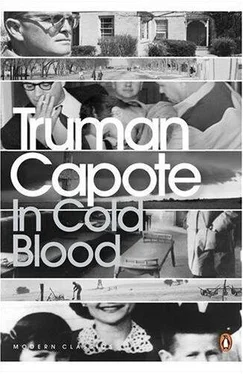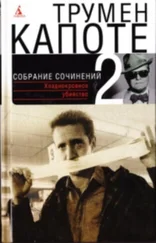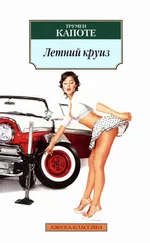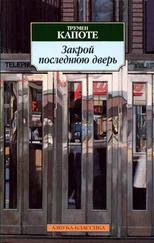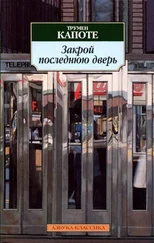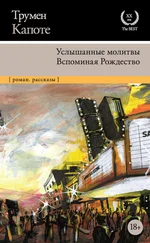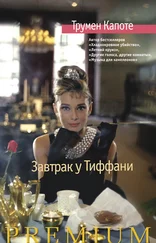Трумен Капоте - In Cold Blood
Здесь есть возможность читать онлайн «Трумен Капоте - In Cold Blood» весь текст электронной книги совершенно бесплатно (целиком полную версию без сокращений). В некоторых случаях можно слушать аудио, скачать через торрент в формате fb2 и присутствует краткое содержание. Год выпуска: 2000, ISBN: 2000, Издательство: Penguin, Жанр: Современная проза, на английском языке. Описание произведения, (предисловие) а так же отзывы посетителей доступны на портале библиотеки ЛибКат.
- Название:In Cold Blood
- Автор:
- Издательство:Penguin
- Жанр:
- Год:2000
- ISBN:0-14-118257-1 / 978-0-14-118257-5
- Рейтинг книги:4 / 5. Голосов: 2
-
Избранное:Добавить в избранное
- Отзывы:
-
Ваша оценка:
- 80
- 1
- 2
- 3
- 4
- 5
In Cold Blood: краткое содержание, описание и аннотация
Предлагаем к чтению аннотацию, описание, краткое содержание или предисловие (зависит от того, что написал сам автор книги «In Cold Blood»). Если вы не нашли необходимую информацию о книге — напишите в комментариях, мы постараемся отыскать её.
In Cold Blood — читать онлайн бесплатно полную книгу (весь текст) целиком
Ниже представлен текст книги, разбитый по страницам. Система сохранения места последней прочитанной страницы, позволяет с удобством читать онлайн бесплатно книгу «In Cold Blood», без необходимости каждый раз заново искать на чём Вы остановились. Поставьте закладку, и сможете в любой момент перейти на страницу, на которой закончили чтение.
Интервал:
Закладка:
Green woke them up. "Gentlemen," he said, speaking without notes, "you have just heard two energetic pleas for mercy in behalf of the defendants. It seems to me fortunate that these admirable attorneys, Mr. Fleming and Mr. Smith, were not at the Clutter house that fateful night - very fortunate for them that they were not present to plead mercy for the doomed family. Because had they been there - well, come next morning we would have had more than four corpses to count."
As a boy in his native Kentucky, Green was called Pinky, a nickname he owed to his freckled coloring; now, as he strutted before the jury, the stress of his assignment warmed his face and splotched it with patches of pink. "I have no intention of engaging in theological debate. But I anticipated that defense counsel would use the Holy Bible as an argument against the death penalty. You have heard the Bible quoted. But I can read, too." He slapped open a copy of the Old Testament. "And here are a few things the Good Book has to say on the subject. In Exodus Twenty, Verse Thirteen, we have one of the Ten Commandments: Thou shalt not kill.' This refers to unlawful killing. Of course it does, because in the next chapter, Verse Twelve, the penalty for disobedience of that Commandment reads: 'He that smiteth a man, so that he die, shall be surely put to death.' Now, Mr. Fleming would have you believe that all this was changed by the coming of Christ. Not so. For Christ says, 'Think not that I am come to destroy the law, or the prophets: I am not come to destroy, but to fulfill.' And finally - " Green fumbled, and seemed to accidentally shut the Bible, whereupon the visiting legal dignitaries grinned and nudged each other, for this was a venerable court-room ploy - the lawyer who while reading from the Scriptures pretends to lose his place, and then remarks, as Green now did, "Never mind. I think I can quote from memory. Genesis Nine, Verse Six: 'Whoso sheddeth man's blood, by man shall his blood be shed.'
"But," Green went on, "I see nothing to be gained by arguing the Bible. Our state provides that the punishment for murder in the first degree shall be imprisonment for life or death by hanging. That is the law. You, gentlemen, are here to enforce it. And if ever there was a case in which the maximum penalty was justified, this is it. These were strange, ferocious murders. Four of your fellow citizens were slaughtered like hogs in a pen. And for what reason? Not out of vengeance or hatred. But for money. Money. It was the cold and calculated weighing of so many ounces of silver against so many ounces of blood. And how cheaply those lives were bought! For forty dollars' worth of loot! Ten dollars a life!" He whirled, and pointed a finger that moved back and forth between Hickock and Smith. "They went armed with a shotgun and a dagger. They went to rob and kill - " His voice trembled, toppled, disappeared, as though strangled by the intensity of his own loathing for the debonair, gum-chewing defendants. Turning again to the jury, he hoarsely asked, "What are you going to do? What are you going to do with these men that bind a man hand and foot and cut his throat and blow out his brains? Give them the minimum penalty? Yes, and that's only one of four counts. What about Kenyon Clutter, a young boy with his whole life before him, tied helplessly in sight of his father's death struggle. Or young Nancy Clutter, hearing the gunshots and knowing her time was next. Nancy, begging for her life: 'Don't. Oh, please don't. Please. Please.' What agony! What unspeakable torture! And there remains the mother, bound and gagged and having to listen as her husband, her beloved children died one by one. Listen until at last the killers, these defendants before you, entered her room, focused a flashlight in her eyes, and let the blast of a shotgun end the existence of an entire household."
Pausing, Green gingerly touched a boil on the back of his neck, a mature inflammation that seemed, like its angry wearer, about to burst. -"So, gentlemen, what are you going to do? Give them the minimum? Send them back to the penitentiary, and take the chance of their escaping or being paroled? The next time they go slaughtering it may be your family. I say to you," he solemnly said, staring at the panel in a manner that encompassed and challenged them all, "some of our enormous crimes only happen because once upon a time a pack of chicken-hearted jurors refused to do their duty. Now, gentlemen, I leave it to you and your consciences."
He sat down. West whispered to him, "That was masterly, sir. "But a few of Green's auditors were less enthusiastic; and after the jury retired to discuss the verdict, one of them, a young reporter from Oklahoma, exchanged sharp words with another newsman, Richard Parr of the Kansas City Star. To the Oklahoman, Green's address had seemed "rabble-rousing, brutal."
"He was just telling the truth," Parr said. "The truth can be brutal. To coin a phrase."
"But he didn't have to hit that hard. It's unfair."
"What's unfair?"
"The whole trial. These guys don't stand a chance."
"Fat chance they gave Nancy Clutter."
"Perry Smith. My God. He's had such a rotten life - "
Parr said, "Many a man can match sob stories with that little bastard. Me included. Maybe I drink too much, but I sure as hell never killed four people in cold blood."
"Yeah, and how about hanging the bastard? That's pretty goddam cold-blooded too."
The Reverend Post, overhearing the conversation, joined in. "Well," he said, passing around a snapshot reproduction of Perry Smith's portrait of Jesus, "any man who could paint this picture can't be one hundred percent bad. All the same it's hard to know what to do. Capital punishment is no answer: it doesn't give the sinner time enough to come to God. Sometimes I despair." A jovial fellow with gold-filled teeth and a silvery widow's peak, he jovially repeated, "Sometimes I despair. Sometimes I think old Doc Savage had the right idea." The Doc Savage to whom he referred was a fictional hero popular among adolescent readers of pulp magazines a generation ago. "If you boys remember, Doc Savage was a kind of superman. He'd made himself proficient in every field - medicine, science, philosophy, art. There wasn't much old Doc didn't know or couldn't do. One of his projects was, he decided to rid the world of criminals. First he bought a big island out in the ocean. Then he and his assistants - he had an army of trained assistants - kidnapped all the world's criminals and brought them to the island. And Doc Savage operated on their brains. He removed the part that holds wicked thoughts. And when they recovered they were all decent citizens. They couldn't commit crimes because that part of their brain was out. Now it strikes me that surgery of this nature might really be the answer to - "
A bell, the signal that the jury was returning, interrupted him.
The jury's deliberations had lasted forty minutes. Many spectators, anticipating a swift decision, had never left their seats. Judge Tate, however, had to be fetched from his farm, where he had gone to feed his horses. A hurriedly donned black robe billowed about him when at last he arrived, but it was with impressive sedateness and dignity that he asked, "Gentlemen of the jury, have you reached your verdicts?" Their foreman replied: "We have, Your Honor." The court bailiff carried the sealed verdicts to the bench.
Train whistles, the fanfare of an approaching Santa Fe express, penetrated the courtroom. Tale's bass voice interlaced with the locomotive's cries as he read: " 'Count One. We the jury find the defendant, Richard Eugene Hickock, guilty of murder in the first degree, and the punishment is death.' " Then, as though interested in their reaction, he looked down upon the prisoners, who stood before him handcuffed to guards; they stared back impassively until he resumed and read the seven counts that followed: three more convictions for Hickock, and four for Smith.
Читать дальшеИнтервал:
Закладка:
Похожие книги на «In Cold Blood»
Представляем Вашему вниманию похожие книги на «In Cold Blood» списком для выбора. Мы отобрали схожую по названию и смыслу литературу в надежде предоставить читателям больше вариантов отыскать новые, интересные, ещё непрочитанные произведения.
Обсуждение, отзывы о книге «In Cold Blood» и просто собственные мнения читателей. Оставьте ваши комментарии, напишите, что Вы думаете о произведении, его смысле или главных героях. Укажите что конкретно понравилось, а что нет, и почему Вы так считаете.
